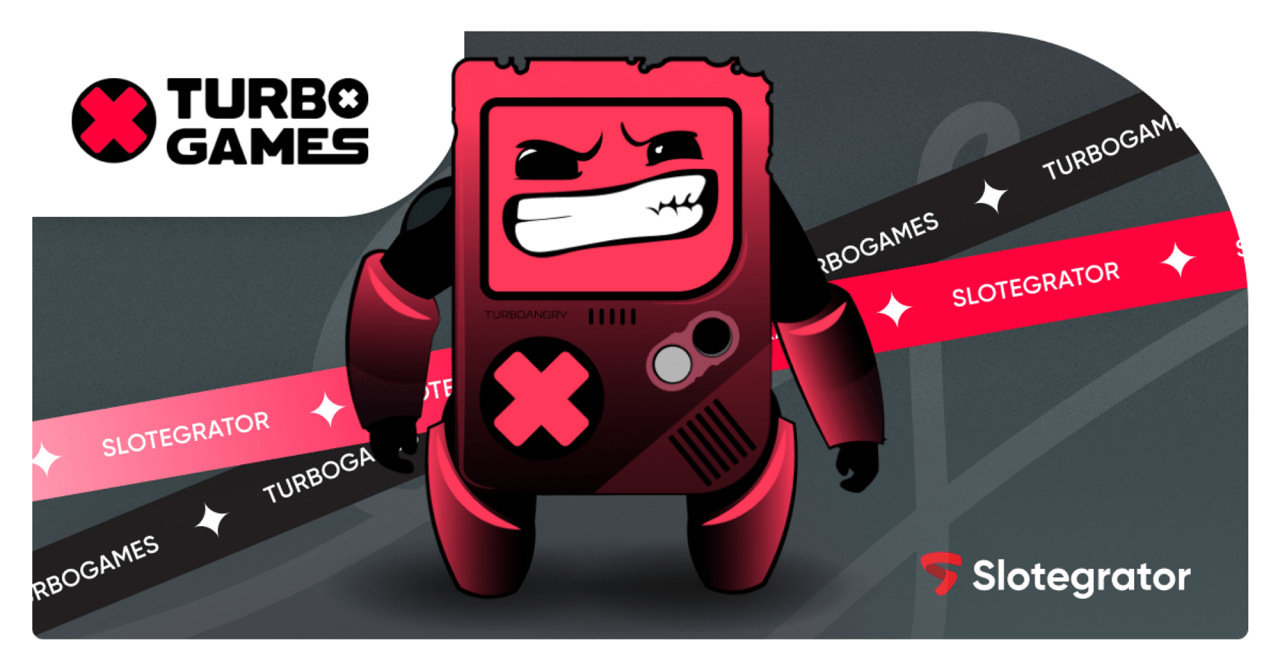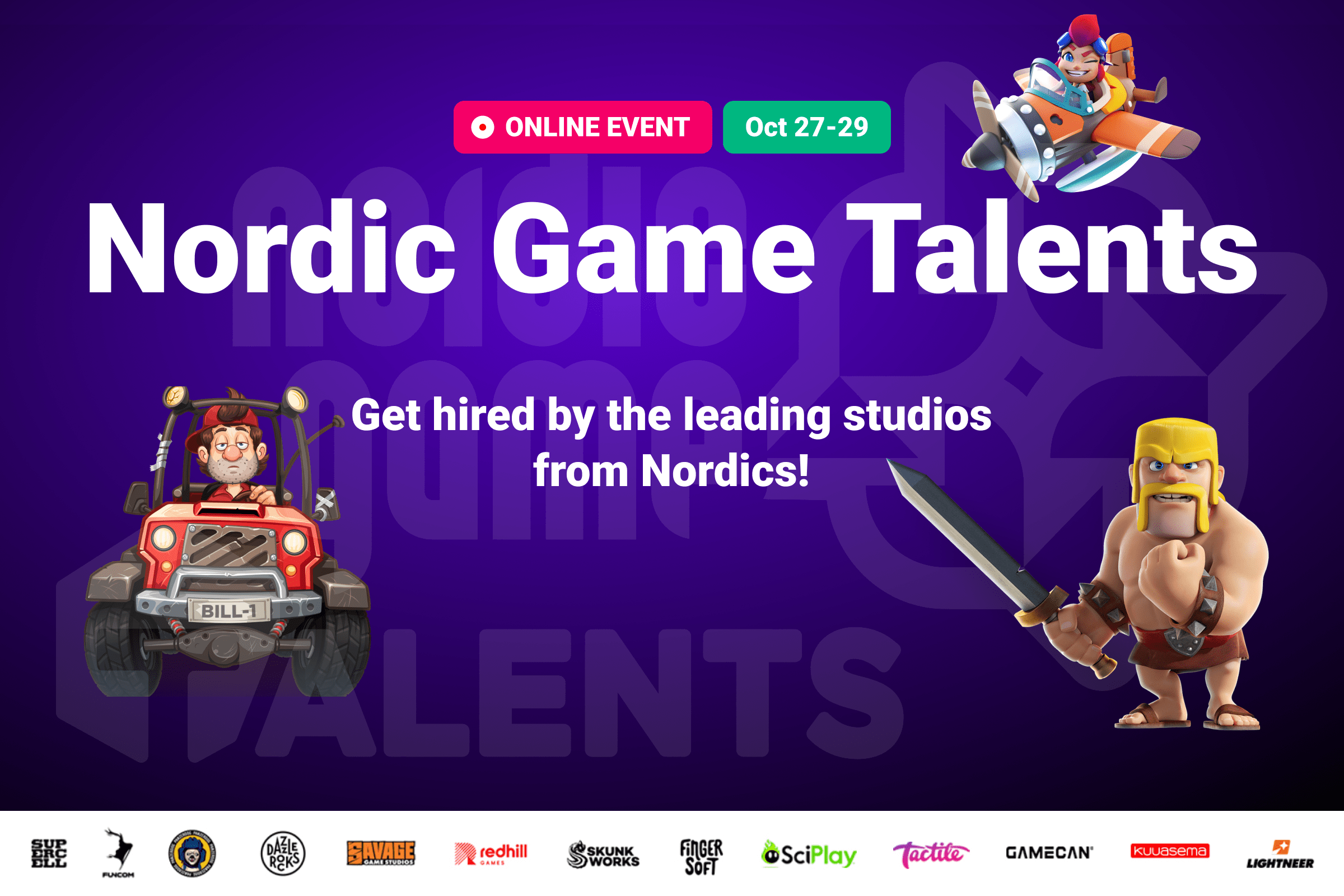iGaming Industry
Monster to Launch Online Gambling Website PokerTribe.com

Gambling is a fantastically, astonishingly lucrative market, yet online gambling is more or less illegal in the United States, despite the popularity of physical casinos in Vegas and Reno and Atlantic City.
Richard Branson opened the high-profile online VirginCasino in 2014, but dealers hit a soft sixteen only for gamers physically in New Jersey. Few industries are this regulated: Donald Trump himself couldn’t get a gambling license in Las Vegas last year.
It wasn’t always this way. PokerStars, the largest online gambling venue in the world, gained prominence during the 2000s with hundreds of thousands of players, valuations in the billions, and plans for an IPO. After the U.S. government shut the website down on April 15, 2011 (a date some folks call Black Friday) no other site has allowed Americans to legally gamble online outside of New Jersey.
Now Monster, the same company that turned the headphone industry upside down with Dr. Dre, plans to revive online gambling in America by enlisting someone with a different kind of notoriety: Fred Khalilian. He’s a former telemarketing kingpin, wannabe reality TV personality, two-time FTC loser — and now, the new COO of Monster. He plans to open the company’s gambling site, PokerTribe.com, on or before December 15. And he might just make the company billions. So he might also be a genius.
But we’re getting ahead of ourselves. Gambling is illegal, right? Sort of.
GAME OF TRIBES
How will a headphone maker succeed in online gambling where Trump, Branson, and others have failed? “The roadmap is unbelievable, fraught with laws, certifications, international law, gaming commissions, all that stuff. Very, very complex,” Monster CEO Noel Lee exclusively told Digital Trends. “But [Fred] has overcome. He’s found his niche, he’s worked his way through the government, through the Federal Trade Commission, through all of that, with a strategy that’s built around the American Indians.”
“I’m going to be a multi, multi billionaire. I probably could be as big as Uber, if not bigger.”
Lee knows what it’s like to find your niche. He found his in the ‘70s when he realized that better electronic cables and engineering could lead to better sound from your stereo. Filling that niche built Monster into a billion-dollar business and transformed the retail industry.
But after the deal with Apple and Beats went south, Monster could use an infusion of cash, he admits. Gaming revenues on Indian reservations totaled $31.2 billion in 2016, according to the National Indian Gaming Commission, and Lee’s new COO Khalilian thinks he has a way to bring some of that cash, well, off the reservation.
A day after Black Friday, when the U.S. shut down PokerStars, Khalilian began his quest to start a legal online casino. He has spent the last six years attempting to transform and mold U.S. law regarding Indian gaming, which he feels could be a multibillion dollar enterprise. And after finding a few loopholes in regulations, he’s confident that he can succeed.
“I think I have it figured out, and I’m going to be the first in the world,” Khalilian told us. “And I’m going to be a multi, multi billionaire, without arrogance. I probably could be as big as Uber, if not bigger.”
HOW POKERTRIBE WORKS
The U.S. Department of Justice had for years considered online poker a violation of the Federal Wire Act – a 1961 law meant to prevent interstate betting via telecommunications systems. That decision was recently reversed, and several states are now dipping their big toes into the industry, notably New Jersey. But Federal rules still govern the United States: Even when a state changes its laws, U.S. law prevents it from opening to customers nationwide. So no one does online gambling nationwide on U.S. soil. Consider marijuana law: While pot is legal in some states, it’s still illegal nationally.
Here’s the thing: Indian reservations aren’t U.S. soil, and the laws are totally different, thanks to the 1988 Indian Gaming Regulatory Act, which allowed gambling on Indian reservations. Khalilian offers an eyebrow-raising explanation of why he suspects the government passed the law:
“This is what I think happened: The U.S. government sat down and went, ‘Oh shit. They’re coming. And they’re going to take their country back. What do we do?’ … They said, ‘They’re drug addicts, alcoholics, and gamblers.’ They’re like, ‘You know what? Let’s help them out. Maybe they will self-destruct and go away. Let’s give them a gambling license, tobacco license, and alcohol license.”
Yikes.
Khalilian is brash, arrogant, charming, and outspoken — and anything but politically correct. But he’s really savvy, too, and regardless of why the government issued the ruling, the outcome was clear. Tribes across the country seized the opportunity to open casinos and tap into the lucrative market that Las Vegas had previously cornered, Khalilian explained.
“They all opened a casino, because that’s all the government told them to do.”
“All of the sudden there are 110 tribes in California and they all have a casino. There are 37 tribes in Oklahoma and they all have a casino,” he said. “There are two tribes in Florida, the Miccosukee and the Seminole, and they all have a casino. They all opened a casino, because that’s all the government told them to do.”
The 1988 law means there are very different rules that govern gaming on reservations. Tribes are free to run Class I games and Class II games such as bingo; table games like poker and blackjack are called Class III and require a special type of license. The state needs to issue what’s called a compact first, which details specifics of what the tribe can and can’t do. The federal government needs to approve the deal. Then a tribe can offer poker to anyone who walks in the door. But what about those who come in the virtual door?
“If the gaming takes place on Indian lands, we have jurisdiction over that,” Michael Hoenig, General Counsel of the National Indian Gaming Commission, told Digital Trends. But someone who comes in the virtual door is hardly on Indian land, right? Problem is, the laws he enforces were written before the rise of online gaming — heck, before the rise of online period. If a tribe’s compact specifies the right to host an online casino, and it’s approved by the state, it should be legal, right?
“I don’t know that anybody foresaw the internet,” Hoenig admitted. “So there are some interesting questions going on about internet gaming.”
In other words, it’s a grey area for the law. And those happen to be places where Khalilian excels.
THE FRED KHALILIAN EXPERIENCE
“Fred is a very unusual personality,” Lee admits. “And quite frankly he’s an acquired taste, because you don’t know what to make of him when you first meet him. And it takes a little time to say, man this guy is a genius.”
Genius is Lee’s word. Others have called him a scam artist, abuser, and rapist.
“The same article’s been written 30,000 times, everybody wants to write about me,” Fred says. “They’re like, listen Fred, we gotta go and visit that area. It’s like a murder scene. And I didn’t even kill! I’m not even OJ!”
What? Rehashing his complicated past brings fire to Fred’s eyes as he recounts a tale of faxing, time shares, and Paris Hilton.
Khalilian’s first law-bending entrepreneurial breakthrough came in the late ’90s, when he noted that listings from yellow- and white-page phonebooks by Sprint and others were being dumped on the web. He created crawlers to scrape that data, aggregate it, package it up, and market it. Companies selling time-shares were a massive advertiser at the time – so he started bulk faxing time share ads to all of the numbers that he’d discovered online.
“At that time there was no laws, between ’96 and 2001. There was no law telling you couldn’t do this, because the internet was so new and so fresh,” he told Digital Trends. So the FTC eventually created some, and in 2001 banned him from telemarketing vacation packages and time shares.
“I had no idea sending faxes was illegal. If I had knew, I wouldn’t have done it! There were no laws.” So Khalilian switched tack, opening a chain of award-winning health clubs and eventually night clubs with Paris Hilton. Following difficulty with Hilton, who showed up late to events or not at all, Khalilian claims he ended his partnership with the nightclub queen, the drama of which nearly led to an MTV reality show searching for “the replacement of the bitch.”
The show never aired – Khalilian alleges – because Paris found out about plans for the show days before it was set to air, leading to an onslaught of phones calls from various people saying he needed to cancel the show – and then, rape charges. According to TMZ, several women came forth in 2007 alleging “battery, sexual battery and false imprisonment,” for which Khalilian was arrested. He claims the Hiltons made it all up.
“Next thing you see, 72 hours after those phone calls, I get accused of rape. And that’s how the show got canceled. I don’t have any proof of it, but it’s just too coincidental.”
Khalilian pled guilty to a misdemeanor, CBS reported, and moved back into telemarketing – and was again pursued and fined by the FTC, which labeled him a “recidivist” and in 2011 banned him from telemarketing entirely. “American consumers won’t be getting any more telemarketing pitches from robocaller Fereidoun ‘Fred’ Khalilian, under a settlement reached by the Federal Trade Commission,” reads a press release the agency put out. “Khalilian has agreed to be permanently banned from the telemarketing business in order to settle FTC charges that he and his company allegedly used pre-recorded robocalls to sell consumers auto service contracts.” Along with the ban came a fine: a monetary judgment of more than $4.2 million, which Khalilian put a dent in “by turning over corporate and personal property totaling approximately $50,000.”
CBS columnist Marlys Harris was blunt in her assessment: “While he’s now banned from all telemarketing, I think consumers would be safer if he were banned from walking outside for a while — and put in prison where he belongs.”
Khalilian points out that the FTC goes after everyone, citing cases against Google, Facebook, 1-800-Flowers. “Give me a company that does over a hundred million a year, type in their name, type FTC versus them. If you didn’t see it pop up I’ll give you a million dollars cash,” he told Digital Trends.
“The FTC is the biggest bullshit I’ve ever seen in my life,” Khalilian says.
POKERSTARS VS. POKERTRIBE VS. POKERTRIBES
His name was battered, he missed his brush with reality TV, and he was banned from telemarketing, but that didn’t stop Fred from moving on to his next venture. In 2011, right after “Black Friday,” he convinced the Cheyenne and Arapaho tribes of Iowa to petition the state to allow them to do what PokerStars had just been prevented from doing: online gambling.
“All he wanted to do was humiliate us in the media and kick us out.”
They agreed, hiring Khalilian as a consultant for $9.4 million and partnering up with his company, Universal Entertainment Group (UEG). The two tribes planned to open an online website: PokerTribes.com. But the deal took years to complete, and following a change in tribal leadership, Khalilian was shown the door. Sources at the FTC pointed out to Digital Trends that he used the money last year to repay his $4.2 million telemarketing fine. It was a win in the FTC’s eyes – but the tribe seems upset.
“A lot of money was paid and nothing was ever received,” Reggie Wassana, speaker of the Cheyenne and Arapaho tribal legislature, told The Oklahoman in May. “Nothing became of it. It was $9.4 million for a website basically — there was no realization of profits and no actual working internet gaming.” In late September, the two tribes finally filed a lawsuit, claiming “the transactions were marked by deceit, greed and utter disregard for the laws and economic well-being of the tribes.”
A month earlier, Khalilian told us a different story.
“They didn’t want their $9.4 million back. They just wanted us to leave. They never sued us, they never came after us – all he wanted to do was humiliate us in the media and kick us out,” he said.…
The post Monster to Launch Online Gambling Website PokerTribe.com appeared first on Eastern European Gaming – News – Interviews – Legal Market Updates – Premium Reports – Events – Directory.
Source: EEGaming.
American iGaming
Supremeland Gaming Gains Interim License Approval in West Virginia
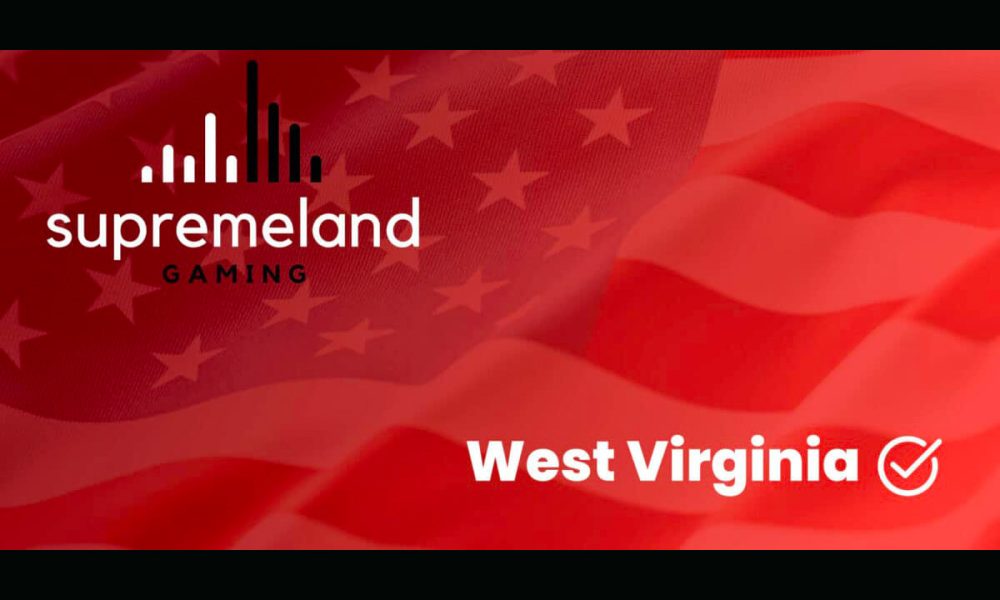
Supremeland Gaming, the emerging brand in American iGaming, announced the approval of an interim Supplier License in West Virginia, further solidifying its position as a key player in the rapidly expanding iGaming industry. This milestone marks the company’s third approval following the successful acquisition of the first approvals in Pennsylvania and New Jersey.
Supremeland Gaming is approved to operate under this interim license and is now authorized to offer its cutting-edge innovation to the Mountain State.
Supremeland’s game portfolio has garnered international appeal since its debut in November 2023. The innovative brand promises cutting-edge slot play, combining immersive storytelling, state-of-the-art graphics, and impressive bonuses.
Rickard Öhrn, CEO of Supremeland Gaming, said: “The acquisition of our interim Supplier License in West Virginia is a pivotal step in our journey, reflecting on our dedication to delivering innovative experiences to a broader audience. As we expand our footprint, our commitment to excellence remains unwavering, and we look forward to contributing to the vibrant gaming landscape in the Mountain State.”
Supremeland is gaining traction for its emerging portfolio of top-notch games, including Red Panda Rising and the international debut title, Munition Mine, underscoring its commitment to pushing the boundaries of innovation in the iGaming industry.
Albert Bellavista
Pragmatic Play Expands LatAm Reach with Betsala Deal
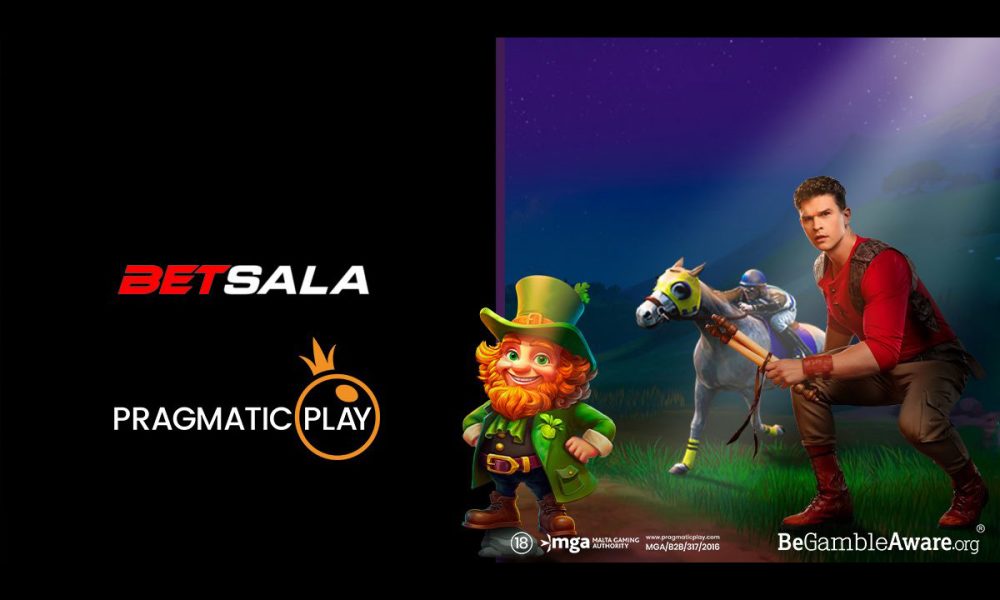
Pragmatic Play, a leading content supplier to the iGaming industry, is continuing its momentum in the Latin American market, after signing an agreement to take its three biggest products live with Betsala.
The agreement will see Pragmatic Play’s full portfolio of award-winning Slot content go live, including recently released Slot titles Loki’s Riches and The Big Dawgs in addition to familiar player-favourites such as Sugar Rush and Gates of Olympus.
Betsala customers will soon gain access to Pragmatic Play’s Live Casino products upon integration being completed. The sector has been a focus for the provider over the previous 12 months with releases such as the dynamic Treasure Island game show which complements Pragmatic Play’s comprehensive range of casino classics such as Roulette, Mega Roulette, and Blackjack which are also available on the platform.
Completing the product offering is Pragmatic Play’s cutting-edge 3D renderings of popular sports such as horse and greyhound racing, football, and motorsports.
The latest LatAm development for Pragmatic Play sees it further boost its profile across the region where it has cemented its status as a leading supplier of casino experiences.
Victor Arias, Vice President of Latin American Operations at ARRISE powering Pragmatic Play, said: “Proving LatAm is still a key source of growth, Pragmatic Play is delighted to now count Betsala as another valued partner in the region.
“Pragmatic Play’s three leading products will soon be on the platform, and we look forward to even more players discovering its robust and engaging offering.”
Albert Bellavista, CEO at Betsala, said: “Pragmatic Play has built a stellar reputation across Latin America for its high-quality experiences, and we welcome them as our latest partner to bolster our offering and provide more thrills than ever.
“Most iGaming enthusiasts worldwide are already familiar with Pragmatic Play’s titles and we know the upcoming addition of its content will come with a great response from our players.”
Conferences
Pragmatic Play Gears Up for SAGSE LATAM 2024
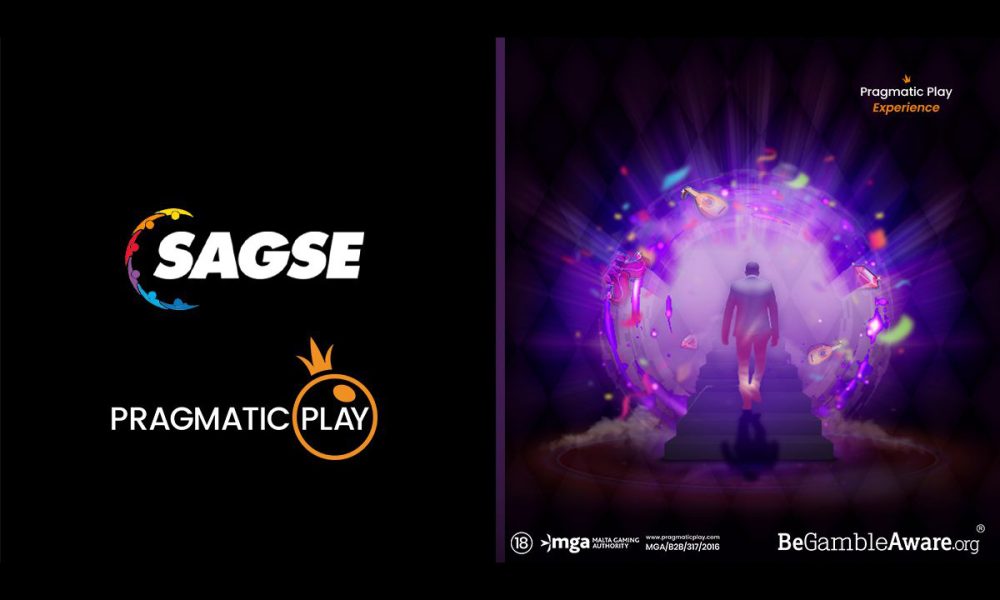
Pragmatic Play, a leading content supplier to the iGaming industry, is set to make another appearance at a Latin American summit, at SAGSE LATAM in Buenos Aires.
Taking place across two days from March 20th-21st, the event sees iGaming professionals gather at Buenos Aires’ Hilton Hotel for the 32nd edition of the iconic exhibition.
SAGSE LATAM marks the second summit attended by Pragmatic Play in Latin America in 2024, with its new immersive proposal Pragmatic Play Experience, after an extremely successful exhibition tour in 2023, which saw the provider make inroads across the continent and impress industry representatives.
The gaming provider will be at Stand 120 to showcase its diverse portfolio, including Slots, Live Casino, Virtual Sports and Bingo content, alongside its brand-new Sportsbook solution.
In addition, Pragmatic Play will be a platinum sponsor of the event, highlighting the importance of such industry exhibitions and the vital role the leading provider plays in them.
Victor Arias, VP of Latin American Operations at ARRISE powering Pragmatic Play, said: “Pragmatic Play is proud to be a platinum sponsor of SAGSE LATAM and to be influential in shaping the future of the Latin American iGaming market. With a comprehensive multi-product offerings and solutions, it is poised to capitalise on the immense opportunities that the region presents.
“With an exciting range of panel discussions and interactivities that the conference brings, it is set to be yet another momentous date in the LATAM gaming calendar.”
-

 gaming2 years ago
gaming2 years agoODIN by 4Players: Immersive, state-of-the-art in-game audio launches into the next generation of gaming
-
EEG iGaming Directory7 years ago
iSoftBet continues to grow with new release Forest Mania
-
News6 years ago
Softbroke collaborates with Asia Live Tech for the expansion of the service line in the igaming market
-
News5 years ago
Super Bowl LIII: NFL Fans Can Bet on the #1 Sportsbook Review Site Betting-Super-Bowl.com, Providing Free Unbiased and Trusted News, Picks and Predictions
-
iGaming Industry6 years ago
Rick Meitzler appointed to the Indian Gaming Magazine Advisory Board for 2018
-
News5 years ago
REVEALED: Top eSports players set to earn $3.2 million in 2019
-
iGaming Industry6 years ago
French Senator raises Loot Boxes to France’s Gambling Regulator
-
News6 years ago
Exclusive Interview with Miklos Handa (Founder of the email marketing solutions, “MailMike.net”), speaker at Vienna International Gaming Expo 2018



